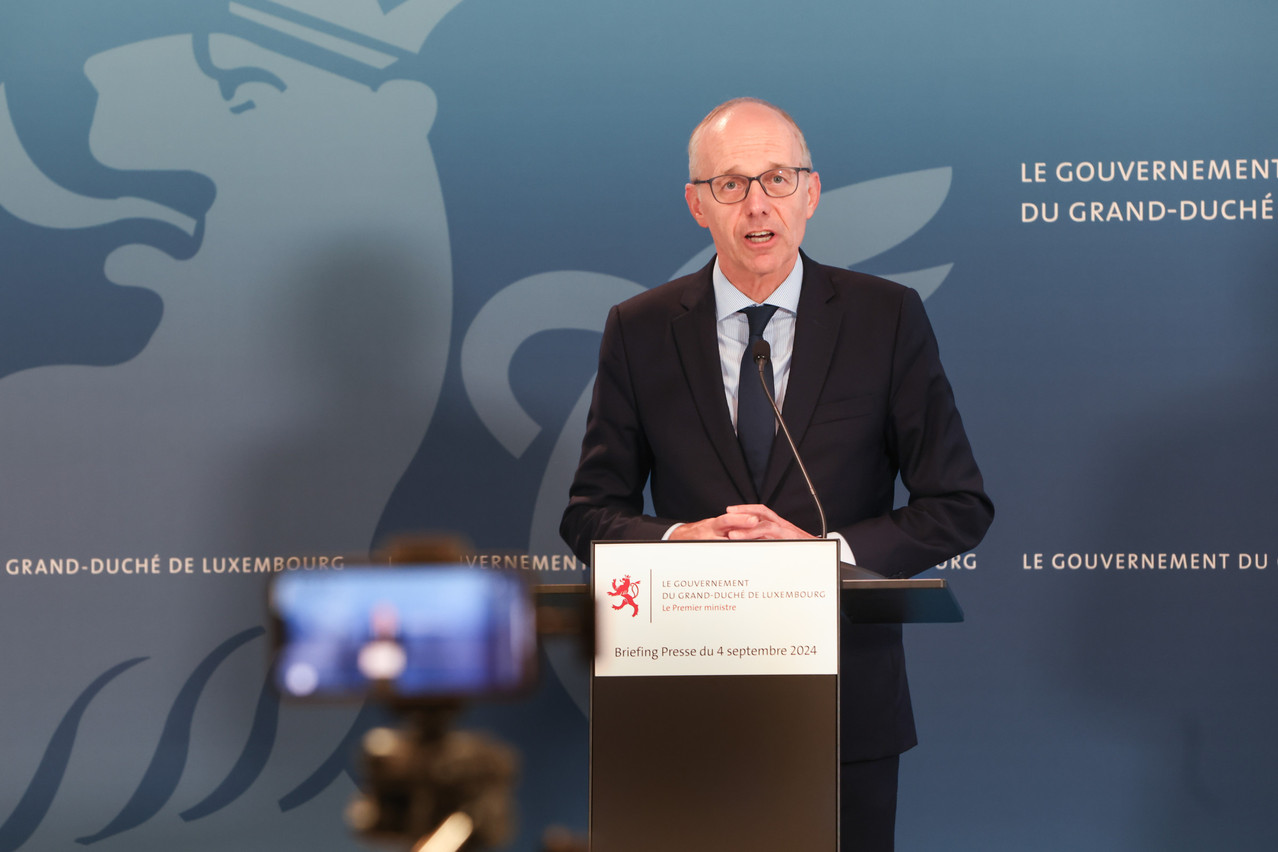Speaking on 4 September, prime minister (CSV) was very clear: “Taxpayers suffered no harm as a result of the disappearance of €61m from the coffers of Caritas.”
“A horrible fraud,” as Frieden described it. But not for the state. Five million euros paid by the state to finance the activities of Caritas International have indeed disappeared, but the government will deduct that €5m from the sums it owes the association. According to the government’s own calculations, the state still owes Caritas €1.5m “on the basis of services actually provided,” less the five million that have disappeared.
According to its 2023 balance sheet, validated in May 2024 by the auditor Grant Thornton, Caritas had €30.7m in its accounts at the end of 2023. €14.9m in equity, including a capital investment grant of €5.3m (€3.8m from the state) and €15.8m in dedicated funds. Dedicated funds, a particularity of the non-profit sector, are funds linked to its corporate purpose. This is the money that has disappeared. To this sum should be added €30m in credit lines with two local banks, which Caritas is contesting.
Read also
At the beginning of the summer, Frieden made it clear that no more money would be paid into Caritas’ accounts “because we no longer have confidence in the current management.” Officially, the management has not changed to date. But the prime minister explained that the government’s primary objective is to ensure that the association’s activities on behalf of the state can continue--and state funding is essential to the smooth running of the association. It receives €4m a month, paid quarterly, to fund its activities.
As a reminder, Caritas’ work is carried out through four structures responsible for reception and solidarity, precariousness, children, young people and families, refugees and migrants, and international action.
Crèches and halfway houses will be up and running in September
So how will activity continue?
“With the new Caritas,” explains Frieden. The new Caritas has not yet been set up, as the state’s only interlocutor is currently the crisis committee, chaired by Christian Billon--former general secretary for asset management of Grand Duke Henri and a former PWC employee--together with Marie-Josée Jacobs, Marc Hengen, Nathalie Frisch, Philippe Sylvestre and Tiphaine Gruny. The crisis committee is working on setting up new structures.
Once these new structures are in place, all the agreements between the state and the association will be cancelled and renegotiated, with reinforced control mechanisms. The structure in charge of children, young people and families--a structure considered to be healthy--will not be affected by this review. “At this stage, it seems that there has been no fraud,” said Frieden. The crèches and maisons relais will therefore continue to operate in September. What will change is that funding will go through other banks “to clearly show the separation.”
For the other three structures, the modus operandi will be specified in the coming weeks. What is certain is that no payments will be made “without tighter controls.” The government’s aim is to ensure that Caritas subcontractors--most of them SMEs--are paid “to avoid a snowball effect.”
On the other hand, the €5m that disappeared from the “international action” structure, which operated on the basis of pre-financing, will not be repaid.
Reforming this branch of the association promises to be complicated.
Salaries will be paid in September. After that, "the state will sign new agreements with the new Caritas to enable salaries to be paid.”
What will this new Caritas look like and who will be in charge? Frieden referred to the association itself. “What’s important for us is that we no longer have to deal with people from the old Caritas. We want to work with a new management team.”
CSSF to be consulted
On the legal consequences of the affair, Frieden mentioned the courts and the country’ financial regulator, the CSSF. “There are a lot of things in this case that I don’t understand,” the prime minister confessed.
And he is not alone in this. “It’s clear that there have been many failings within Caritas.” While it wants to leave justice to the courts, the government is not standing idly by. Finance minister (CSV) and justice minister (CSV) have been tasked with examining whether a reform of the governance of not-for-profit organisations under the law of 7 August 2023 can be strengthened, particularly for not-for-profit organisations that receive a lot of public funding.
“I am aware of the . I’m not sure that it is relevant. Each of the transfers and credit requests issued by Caritas had two signatures. Were these authorised signatures?” asked Frieden.
The CSSF was also asked by the government via the finance ministry to point out any shortcomings on the part of the banks. Two of the banks named in the affair have representatives of the state as shareholders on their boards of directors. They will also be calling the banks to account.
While in the short term the survival of Caritas and, above all, its actions appear to have stabilised, the affair will have major political and legal repercussions. Frieden assured us: “I don’t intend to stop here.”
This article was originally published in .
